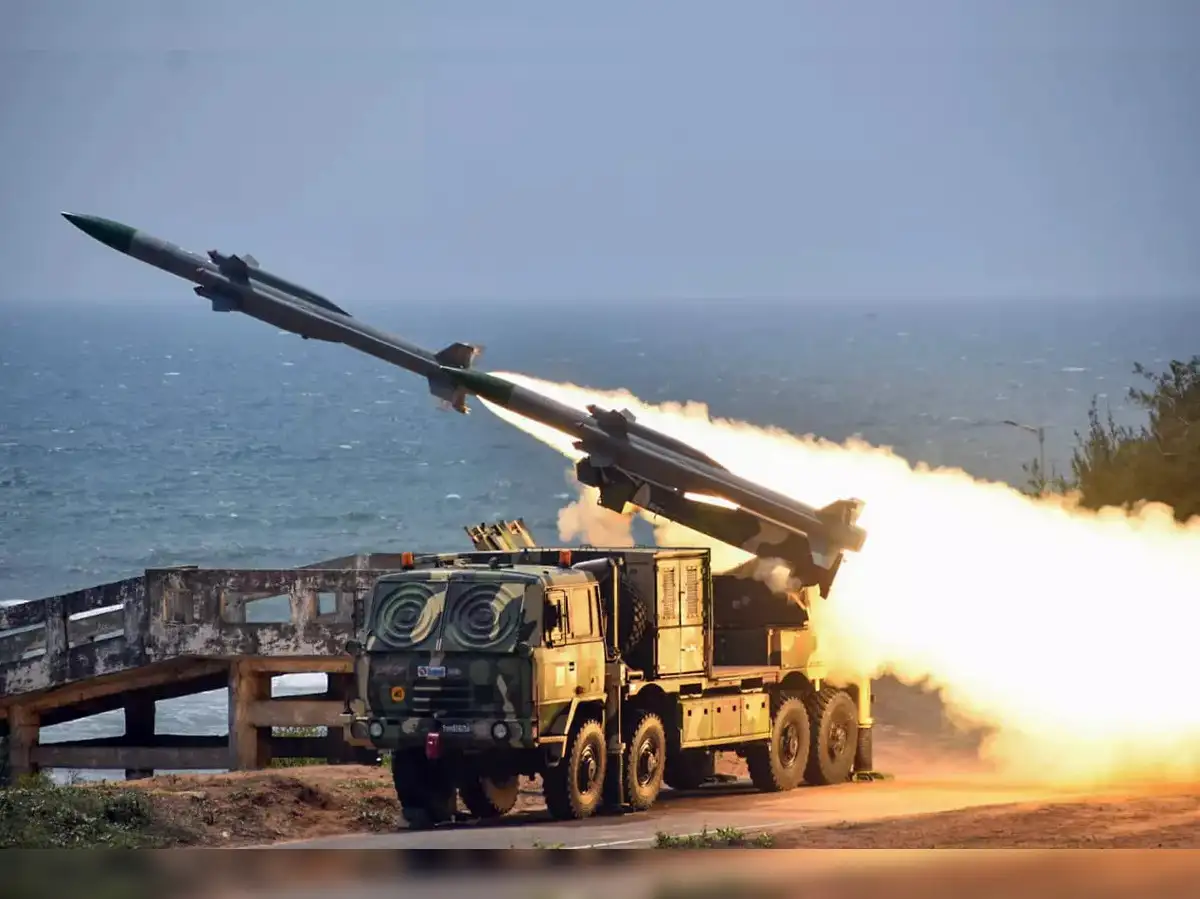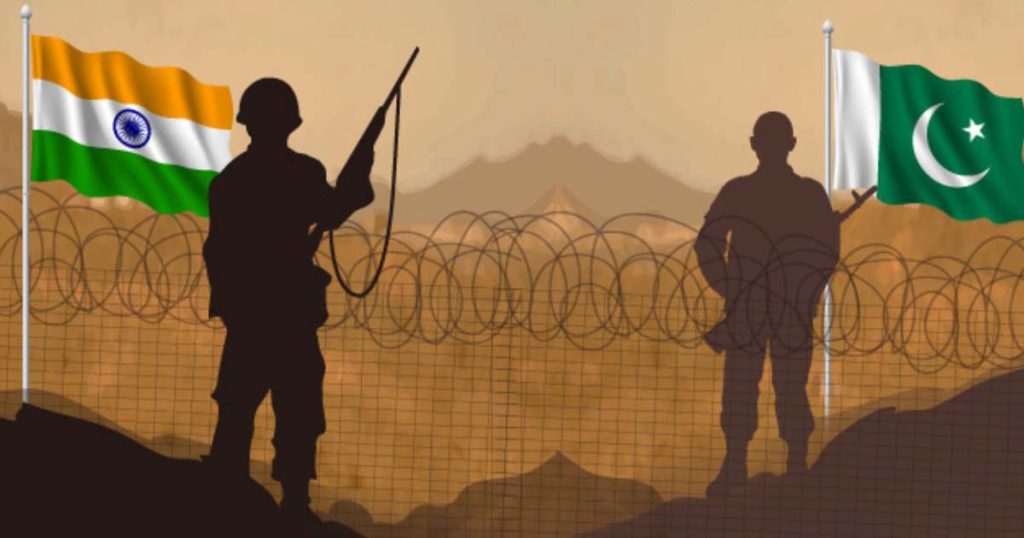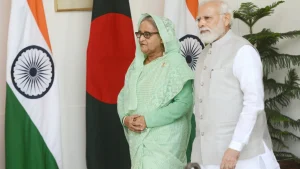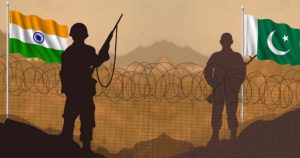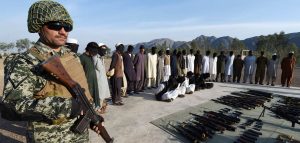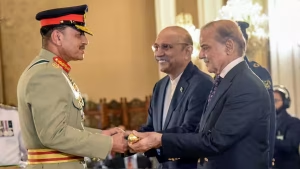The relationship between India and Pakistan has experienced periods of hostility, wars, crisis, diplomatic breakdowns, and mutual mistrustdespite occasional efforts at reconciliation and normalization. At present, there are three core issues between them,and they aredeeply interconnected in kind:the Kashmir dispute, water sharing under the Indus Waters Treaty(IWT), and mutual allegations of cross-border terrorism. The major problem lies in the fact that both NewDelhi and Islamabad perceive these issues through entirely different lenses,which has further complicated the overall situation.
First, in the Kashmir dispute lies a stark difference in perception. NewDelhi considers Kashmir an integral part of its unionsince the abrogation of the Article 370 of the Indian Constitution in 2019, while Islamabad regards Kashmir as an “unfinished agenda of the partition” of the Subcontinent,considering Kashmir a disputed territory under Indian occupation and its people systematically denied the right to self-determination. Additionally, the Kashmir conflict, which is the longest-pending dispute on the United Nations (UN) agenda, has become more complex, deeply intertwining with the broader regional geopolitical landscape and domestic political agendas, carryingsignificant economic, military, and emotional dimensions as well.The Modi administration revoked the special constitutional status of Kashmir by abrogating Article 370 and Article 35A, which according toPakistan,isa unilateral attempt to change the status-quo in violation of the international norms and the UN resolutions. Kashmir continues to remain a nuclear flashpoint.Modi government remains reluctant to negotiate over Kashmir issue after all these recent crises. Hence, without resolving Kashmir, lasting peace and stability will remain unattainable in South Asia.
Second comes the unilateral action taken by the Modi administration against IWT post-Pahalgam incident. The treaty was considered to be the most durable agreement between India and Pakistan, withstanding decades of tensions, diplomatic breakdowns and wars. However, the Indian government back in April cited the Pahalgam attack as a pretext to unilaterally hold the 1960s IWT in ‘abeyance’. In response, Pakistan declared through the country’s highest civil-military decision making body, the National Security Committee (NSC), that any attempt by New Delhi to stop or divert Pakistan’s share of water under the IWT will be considered as an ‘act of war’ since water is a shared regional resource and lifeline for Pakistan’s 240 million citizens. Yet, the Indian Prime Minister Narendra Modi remains adamant about keeping IWT suspended, by reiterating that “blood and water cannot flow together”-the sentiment he has voiced in the past as well. The Bharatiya Janata Party (BJP) government considers IWT with Pakistan as ‘one-sided’ and ‘unjust’. Analytically, NewDelhi’s hardline stance towards IWT is not only reactive but cruciallylinked to its decision of revoking Articles 35A and 370 to assert full constitutional and territorial control over the disputed region, notably over its resources. Therefore, India is not comfortable with the continued flow of water from the Indian Illegally Occupied Jammu and Kashmir (IIOJ&K) to Pakistan under the IWT, whichNew Delhi considers an obstacle to its allegedly sovereign right over the rivers passing through what it now claims as its undisputed territory.Notably, India not only moved away from the obligations of the IWT but sought legal justifications outside the IWT’s text by invoking Articles 60 and 62 of the Vienna Convention on the Law of Treaties, which conditionalize material breach or major change in circumstances. Islamabad contests this legal interpretation arguing that the conditions outlined in Articles 60 and 62 do not apply here. Moreover, the IWT contains no clause that allows either party to unilaterally withdraw from the treaty. Therefore, the legal basis for suspension of the IWT is invalid.
Third issue is the mutual accusation of cross-border infiltrations and allegations of terrorism, and that too in the IIOJK.Prime MinisterModi has repeatedly reiterated that “terror and trade talks cannot happen together,” and this too achieves several goals:first, to justify New-Delhi’s reluctance to engage in meaningful dialogue with Islamabad; second, to legitimizeits ‘use of force’ approach in Kashmir and periodically reinforce thispolitical narrative on India’s national security; third, to link the Kashmiri freedom struggle with the allegations of terrorism in order to undermine the legitimacy of Kashmir’s indigenous liberation struggle. From Islamabad’s perspective, successive governments in India have set a trend of benefitting from the international environment post 9/11 attacks to frame actions against Kashmiris as part of the broader global War on Terror. Lastly, India is trying to seek diplomatic isolation of Pakistan, globally as evident through Modi administration officials’ confession that Indian lobby in the United States (US) and the Financial Action Task Force (FATF) played role to grey list Pakistan in the FATF.
Pakistan categorically maintains its position of extending merely political, diplomatic, and moral support to the Kashmiri’s right to self-determination. Islamabad also points out that a recurring pattern has been observed in recent years wherein any major attack in India or in IIOJK is instantaneously attributed to Pakistan by New Delhi without credible evidence and thorough investigation as it happened recently during the Red Fort incident, thereby reinforcing its predetermined narratives. Also, the Modi administration has declined any joint investigation offered by Pakistan into terror incidents happened in India. Operation Sindoor also depicts BJP’s resort to unilateral military action while acting anarchically as judge, jury, and executioner post-Pahalgam incident, with no investigation, thereby attempting to establish a “new-normal,” however deterred by Pakistan with the employment of Pakistan’s Full Spectrum Deterrence policy and the Quid Pro Quo Plus (QPQ+) retaliation, along with a forewarning of “new normal of swift retributive response”. Pakistan accuses NewDelhi of running with the hare and hunting with the hounds by presenting itself as a victim of terrorism while supporting anti-Pakistan terrorist organizations particularly the Tehrik-i-Taliban Pakistan (TTP) and the Balochistan Liberation Army (BLA). Pakistani claims are backed by documentary evidence often shared with the relevant UN agencies and partners.
Hence, these three issues remain the major fault lines in Pakistan-India relations. Since May 2025 crisis, there have been persistent tensions more frequently radiating from these unresolved issues: bilateral traderemains suspended; there is no conducive environment or political will for dialogue; heightened military preparedness along borders and more frequent military exercises and missile tests are taking place; and even politicization of sports can be witnessed. Evidently, there is little hope for any meaningful progress in India-Pakistan relations without resolving these three core issues via dialogue and other confidence building measures. However, if New-Delhi moderates its approach, regional integration via good neighborly relations may no longer remain hostage to deep-rooted strategic and political rivalry.

